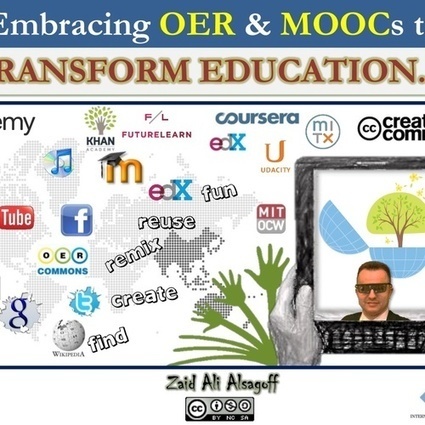It's clear that more and more schools are aiming to prepare students for a global marketplace that requires networked learning experiences, an understanding of digital citizenship, and a way to navigate and organize a stream of information and resources from a variety of different sources.
...
"This sort of [networked] learning actually helps students organize themselves in a very busy world," Mr. Hollinger said. "Before, when students were working, they would get lost in the hubbub of everything that happens online. We found it was essential for them to be able to create a space [for those resources]."
Via
Peter B. Sloep



 Your new post is loading...
Your new post is loading...













